|
Books Should Be Free Loyal Books Free Public Domain Audiobooks & eBook Downloads |
|
|
Books Should Be Free Loyal Books Free Public Domain Audiobooks & eBook Downloads |
|
Non-fiction |
|---|
|
Book type:
Sort by:
View by:
|
By: Wilfred Byron Shaw (1881-1959) | |
|---|---|
 The University of Michigan
The University of Michigan
| |
By: Wilkie Collins (1824-1889) | |
|---|---|
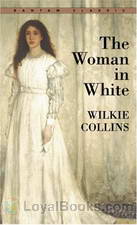 The Woman in White
The Woman in White
Wilkie Collins’s The Woman in White tells the story of two half-sisters, Laura Fairlie and Marian Halcombe who were embroiled in the sinister plot of Sir Percival Glyde and Count Fosco to take over their family’s wealth. It’s considered to be one of the first “sensation novels” to be published. Like most novels that fall into this category, the protagonists here are pushed to their limits by the villains before they finally got the justice they deserved. The story begins with Walter Hartright helping a woman dressed in white who turned out to have escaped from a mental asylum... | |
By: Willa Sibert Cather (1873-1947) | |
|---|---|
 Collection Of Stories, Reviews And Essays
Collection Of Stories, Reviews And Essays
Stories and essays by Willa Cather | |
By: William A. Alcott (1798-1859) | |
|---|---|
 Vegetable Diet: As Sanctioned by Medical Men
Vegetable Diet: As Sanctioned by Medical Men
| |
By: William Augustus Munn | |
|---|---|
 A Description of the Bar-and-Frame-Hive With an Abstract of Wildman's Complete Guide for the Management of Bees Throughout the Year
A Description of the Bar-and-Frame-Hive With an Abstract of Wildman's Complete Guide for the Management of Bees Throughout the Year
| |
By: William Beatty, M.D. (1773-1842) | |
|---|---|
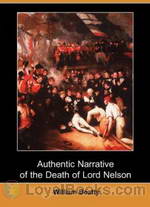 The Death of Lord Nelson
The Death of Lord Nelson
“The Surgeon of the late illustrious Lord NELSON feels himself called upon, from the responsible situation which he held on the eventful day of the 21st of October 1805, to lay before the British Nation the following Narrative. It contains an account of the most interesting incidents which occurred on board the Victory. (Lord NELSON’s flag-ship) from the time of her sailing from England, in the month of September, till the day of battle inclusively”. – William Beatty | |
By: William Blackstone (1723-1780) | |
|---|---|
 Commentaries on the Laws of England Book the First
Commentaries on the Laws of England Book the First
| |
By: William Bligh (1754-1817) | |
|---|---|
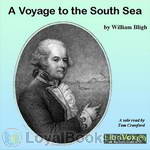 A Voyage to the South Sea
A Voyage to the South Sea
A Voyage to the South Sea, undertaken by command of His Majesty, for the purpose of conveying the Bread-fruit tree to the West Indies, in His Majesty’s ship The Bounty, commanded by Lieutenant William Bligh. Including an account of the Mutiny on board the said ship, and the subsequent voyage of part of the crew, in the ship’s boat, from Tofoa, one of the Friendly Islands, to Timor, a Dutch settlement in the East Indies. | |
By: William Bodham Donne (1807-1882) | |
|---|---|
 Old Roads and New Roads
Old Roads and New Roads
| |
By: William Brodie Gurney (1777-1855) | |
|---|---|
 The Trial of Charles Random de Berenger, Sir Thomas Cochrane,commonly called Lord Cochrane
The Trial of Charles Random de Berenger, Sir Thomas Cochrane,commonly called Lord Cochrane
| |
By: William Brooke O'Shaughnessy (1809-1889) | |
|---|---|
 On the Preparations of the Indian Hemp
On the Preparations of the Indian Hemp
The author investigated the uses of cannabis resin as an anticonvulsant and relaxant in cases of tetanus, cholera, and infantile convulsions. He and others also carried out animal studies on its use, and noted its low toxicity. He recommended that British doctors assessed the drug's use in such cases. | |
By: William C. (William Chandler) Bagley (1874-1946) | |
|---|---|
 Craftsmanship in Teaching
Craftsmanship in Teaching
| |
By: William Carew Hazlitt (1834-1913) | |
|---|---|
 Old Cookery Books and Ancient Cuisine
Old Cookery Books and Ancient Cuisine
| |
By: William Charles Henry Wood (1864-1947) | |
|---|---|
 Draft of a Plan for Beginning Animal Sanctuaries in Labrador
Draft of a Plan for Beginning Animal Sanctuaries in Labrador
| |
By: William Cobbett (1763-1835) | |
|---|---|
 Cottage Economy
Cottage Economy
How can you tell when your pig is fat enough? Why should you never buy mustard? What's wrong with eating potatoes? Which is better, beer or tea? And what type of straw makes the best bonnets? William Cobbett is the man to ask. Here is his book of practical advice to the rural labouring 'cottager' (first published as a part-work in 1821-22), the precursor in many ways to the handbooks on self-sufficiency that today entice so many city-dwellers. A champion of the rural working class at a time of huge... | |
By: William Cooper | |
|---|---|
 A Sketch of the Life of the late Henry Cooper Barrister-at-Law, of the Norfolk Circuit; as also, of his Father
A Sketch of the Life of the late Henry Cooper Barrister-at-Law, of the Norfolk Circuit; as also, of his Father
| |
By: William D. Granger | |
|---|---|
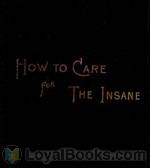 How to Care for the Insane
How to Care for the Insane
"The writer believes that all attendants should be regularly instructed in their duties, and the highest standard of care can be reached only when this is done. He also believes that every person who is allowed to care for the insane will be greatly benefited by such instruction, and will be able to learn every thing taught, if the teacher uses simple methods and is patient to instruct."As this manual was originally written in 1886, the basic medical instruction IS out-of-date and should not be used to diagnose any medical problem, nor should be used in the case of an emergency. It has been recorded for entertainment purposes only! | |
By: William Dean Howells (1837-1920) | |
|---|---|
 My Mark Twain
My Mark Twain
William Dean Howells (1837-1920) became fast friends with Mark Twain from the moment in 1869 when Twain strode into the office of The Atlantic Monthly in Boston to thank Howells, then its assistant editor, for his favorable review of Innocents Abroad. When Howells became editor a few years later, The Atlantic Monthly began serializing many of Twain’s works, among them his non-fiction masterpiece, Life on the Mississippi. In My Mark Twain, Howells pens a literary memoir that includes such fascinating scenes as their meetings with former president Ulysses Grant who was then writing the classic autobiography that Twain would underwrite in the largest publishing deal until that time... | |
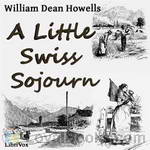 A Little Swiss Sojurn
A Little Swiss Sojurn
A charming brief account of a two months' autumnal stay on the shores of the Lake of Geneva. Howells, who was there with his family traveling from England to Italy, has a sharp eye not only for scenery and architecture, but for people and customs, both Swiss and foreign. | |
By: William E. B. Du Bois (1868-1963) | |
|---|---|
 The Souls of Black Folk
The Souls of Black Folk
“Few books make history and fewer still become the foundational texts for the movements and struggles of an entire people....” One such great work was The Souls of Black Folk by William EB Du Bois. Published in 1903, it is a powerful and hard-hitting view of sociology, race and American history. It became the cornerstone of the civil rights movement and when Du Bois attended the first National Negro Conference in 1909, he was already well-known as a proponent of full and unconditional equality for African Americans... | |
By: William F. Cody | |
|---|---|
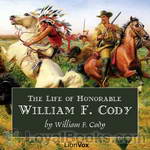 The Life of Honorable William F. Cody
The Life of Honorable William F. Cody
The life and adventures of Honorable William F. Cody–Buffalo Bill–as told by himself, make up a narrative which reads more like romance than reality, and which in many respects will prove a valuable contribution to the records of our Western frontier history. While no literary excellence is claimed for the narrative, it has the greater merit of being truthful, and is verified in such a manner that no one can doubt its veracity. The frequent reference to such military men as Generals Sheridan, Carr, Merritt, Crook, Terry, Colonel Royal, and other officers under whom Mr... | |
By: William Falconer | |
|---|---|
 Mushrooms: how to grow them a practical treatise on mushroom culture for profit and pleasure
Mushrooms: how to grow them a practical treatise on mushroom culture for profit and pleasure
| |
By: William George Jordan (1864-1928) | |
|---|---|
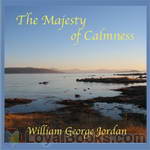 The Majesty of Calmness
The Majesty of Calmness
Change your life by changing your thoughts. The Majesty of Calmness is your guide to attracting prosperity, manifesting opportunities, and managing stress–all while discovering the values most precious to you. | |
By: William Graham Sumner (1840-1910) | |
|---|---|
 Forgotten Man and Other Essays
Forgotten Man and Other Essays
Sumner's popular essays were to give him a wider audience to distribute his anti-imperialism, his advocacy of free markets and the gold standard. He also had a long term influence over modern American conservatism. This is the final collection of his essays and is edited by Albert Galloway Keller. It concludes with The Forgotten Man where Sumner argued that, in his day, politics was being subverted by those proposing a "measure of relief for the evils which have caught public attention. | |
By: William H. (William Harrison) Ukers (1873-1945) | |
|---|---|
 All About Coffee
All About Coffee
| |
By: William H. (William Henry) Dooley (1880-) | |
|---|---|
 Textiles For Commercial, Industrial, and Domestic Arts Schools; Also Adapted to Those Engaged in Wholesale and Retail Dry Goods, Wool, Cotton, and Dressmaker's Trades
Textiles For Commercial, Industrial, and Domestic Arts Schools; Also Adapted to Those Engaged in Wholesale and Retail Dry Goods, Wool, Cotton, and Dressmaker's Trades
| |
By: William H. Hudson (1841-1922) | |
|---|---|
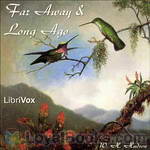 Far Away and Long Ago
Far Away and Long Ago
William Henry Hudson (August 1841 – 1922) was an author, naturalist and ornithologist. Hudson was born of U.S. parents living in the Quilmes Partido in Buenos Aires Province, Argentina, where he spent his youth studying the local flora and fauna and observing both natural and human dramas on what was then a lawless frontier. ‘Far Away and Long Ago’ is a classic memoir of a boy, fascinated by nature, on the Pampas in the 19th century. | |
By: William Hanford Edwards | |
|---|---|
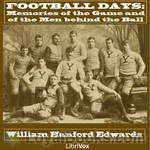 Football Days: Memories of the Game and of the Men behind the Ball
Football Days: Memories of the Game and of the Men behind the Ball
A book reminiscent of the days when football was gaining popularity in America by MHAIJH85 | |
By: William Harmon Norton (1856-1944) | |
|---|---|
 The Elements of Geology
The Elements of Geology
Geology is a science of such rapid growth that no apology is expected when from time to time a new text-book is added to those already in the field. The present work, however, is the outcome of the need of a text-book of very simple outline, in which causes and their consequences should be knit together as closely as possible,—a need long felt by the author in his teaching, and perhaps by other teachers also. The author has ventured, therefore, to depart from the common usage which subdivides... | |
By: William Healy, Mary Healy | |
|---|---|
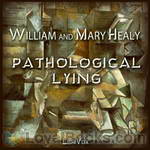 Pathological Lying, Accusation, and Swindling – A Study in Forensic Psychology
Pathological Lying, Accusation, and Swindling – A Study in Forensic Psychology
This work describes and analyzes several cases of pathological behavior. The interest comes not only from the cases themselves, but also from the of-its-time analysis which is mired in what we now know to be wrong thinking about mental illness, sexuality, gender, and race. - written by Mary Schneider | |
By: William Henry Holmes (1846-1933) | |
|---|---|
 A Study Of The Textile Art In Its Relation To The Development Of Form And Ornament
A Study Of The Textile Art In Its Relation To The Development Of Form And Ornament
| |
By: William Henry Pyle (1875-) | |
|---|---|
 The Science of Human Nature A Psychology for Beginners
The Science of Human Nature A Psychology for Beginners
| |
By: William Hillary (1771-1847) | |
|---|---|
 An Appeal to the British Nation on the Humanity and Policy of Forming a National Institution for the Preservation of Lives and Property from Shipwreck (1825)
An Appeal to the British Nation on the Humanity and Policy of Forming a National Institution for the Preservation of Lives and Property from Shipwreck (1825)
| |
By: William J. Claxton | |
|---|---|
 The Mastery of the Air
The Mastery of the Air
| |
By: William James (1842-1910) | |
|---|---|
 Essays in Radical Empiricism
Essays in Radical Empiricism
William James (1842 – 1910) was a pioneering American psychologist and philosopher. He wrote influential books on the young science of psychology, educational psychology, psychology of religious experience and mysticism, and the philosophies of pragmatism and Radical Empiricism. Essays in Radical Empiricism is a collection edited and published posthumously by his colleague and biographer Ralph Barton Perry in 1912. It was assembled from a collection of reprinted journal articles published from 1904–1905 which James had deposited in August 1906 at Harvard University, for supplemental use by his students. | |
 Varieties of Religious Experience
Varieties of Religious Experience
The Varieties of Religious Experience: A Study in Human Nature is a book by the Harvard psychologist and philosopher William James that comprises his edited Gifford Lectures on "Natural Theology" delivered at the University of Edinburgh in Scotland between 1901 and 1902. These lectures concerned the nature of religion and the neglect of science, in James' view, in the academic study of religion. Soon after its publication, the book found its way into the canon of psychology and philosophy, and has remained in print for over a century. | |
 Pragmatism
Pragmatism
'Pragmatism' contains a series of public lectures held by William James in Boston 1906–7. James provides a popularizing outline of his view of philosophical pragmatism while making highly rhetorical and entertaining lashes towards rationalism and other competing schools of thought. James is especially concerned with the pragmatic view of truth. True beliefs should be defined as, according to James, beliefs that can successfully assist people in their everday life. This is claimed to not be relativism... | |
By: William Kitchiner (1775?-1827) | |
|---|---|
 The Cook's Oracle; and Housekeeper's Manual
The Cook's Oracle; and Housekeeper's Manual
| |
By: William Lloyd Garrison (1805-1879) | |
|---|---|
 The Abolition Of Slavery The Right Of The Government Under The War Power
The Abolition Of Slavery The Right Of The Government Under The War Power
| |
By: William Makepeace Thackeray (1811-1863) | |
|---|---|
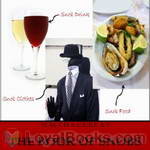 The Book of Snobs
The Book of Snobs
The necessity of a work on Snobs, demonstrated from History, and proved by felicitous illustrations:—I am the individual destined to write that work—My vocation is announced in terms of great eloquence—I show that the world has been gradually preparing itself for the WORK and the MAN—Snobs are to be studied like other objects of Natural Science, and are a part of the Beautiful (with a large B). They pervade all classes—Affecting instance of Colonel Snobley. | |
By: William McCombie (1805-1880) | |
|---|---|
 Cattle and Cattle-breeders
Cattle and Cattle-breeders
| |
By: William Morris (1834-1896) | |
|---|---|
 Signs of Change
Signs of Change
In the 1880s William Morris, the artist and poet famously associated with the Arts and Crafts movement, left the Liberal Party and threw himself into the Socialist cause. He spoke all over the country, on street corners as well as in working men's clubs and lecture halls, and edited and wrote for the Socialist League's monthly newspaper. Signs of Change is a short collection of his talks and writings in this period, first published in 1888, covering such topics as what socialism and work should be, and how capitalism and waste developed. | |
By: William N. Brown | |
|---|---|
 Handbook on Japanning: 2nd Edition For Ironware, Tinware, Wood, Etc. With Sections on Tinplating and Galvanizing
Handbook on Japanning: 2nd Edition For Ironware, Tinware, Wood, Etc. With Sections on Tinplating and Galvanizing
| |
By: William Nelson Taft | |
|---|---|
 On Secret Service
On Secret Service
Detective-Mystery stories based on real cases solved by government agents. Created initially in 1865, the U.S. Secret Service continued to expand over the years, particularly following the assassination of President McKinley in 1901. The episodes in this compilation are comprised of authentic stories, dramatized, while remaining true to the actual incidences. - Summary by Roger Melin | |
By: William R. Lighton (1866-1923) | |
|---|---|
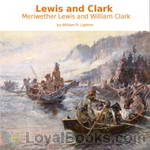 Lewis and Clark: Meriwether Lewis and William Clark
Lewis and Clark: Meriwether Lewis and William Clark
Meriwether Lewis and William Clark – In the years 1804, 1805, and 1806, two men commanded an expedition which explored the wilderness that stretched from the mouth of the Missouri River to where the Columbia enters the Pacific, and dedicated to civilization a new empire. Their names were Meriwether Lewis and William Clark. This book relates that adventure from it’s inception through it’s completion as well as the effect the expedition had upon the history of the United States. | |
By: William Sangster (1808-1888) | |
|---|---|
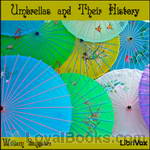 Umbrellas and Their History
Umbrellas and Their History
A whimsically serious look at the umbrella and society. | |
By: William Saunders (1822-1900) | |
|---|---|
 Catalogue of Economic Plants in the Collection of the U. S. Department of Agriculture
Catalogue of Economic Plants in the Collection of the U. S. Department of Agriculture
| |
By: William Senior (1839?-1920) | |
|---|---|
 Lines in Pleasant Places Being the Aftermath of an Old Angler
Lines in Pleasant Places Being the Aftermath of an Old Angler
| |
 Scotch Loch-Fishing
Scotch Loch-Fishing
| |
By: William Strunk Jr. | |
|---|---|
 The Elements of Style
The Elements of Style
The Elements of Style (1918) by William Strunk, Jr. is an American English writing style guide. It is one of the best-known and most influential prescriptive treatment of English grammar and usage, and often is required reading in U.S. high school and university composition classes. The original 1918 edition of The Elements of Style detailed eight elementary rules of usage, ten elementary principles of composition, “a few matters of form”, and a list of commonly "misused" words and expressions... | |
By: William T. Hornaday (1854-1937) | |
|---|---|
 Our Vanishing Wild Life
Our Vanishing Wild Life
We are weary of witnessing the greed, selfishness and cruelty of “civilized” man toward the wild creatures of the earth. We are sick of tales of slaughter and pictures of carnage. It is time for a sweeping Reformation; and that is precisely what we now demand. -William Temple Hornaday | |
By: William T. Preyer (1841-1897) | |
|---|---|
 The Mind of the Child, Part II The Development of the Intellect, International Education Series Edited By William T. Harris, Volume IX.
The Mind of the Child, Part II The Development of the Intellect, International Education Series Edited By William T. Harris, Volume IX.
| |
By: William Tecumseh Sherman (1820-1891) | |
|---|---|
 Sherman’s Recollections of California, 1846-1848, 1855-1857, from his Memoirs
Sherman’s Recollections of California, 1846-1848, 1855-1857, from his Memoirs
This librivox recording comprises three chapters from American Civil War General William Tecumseh Sherman’s Memoirs. The chapters deal with a posting to California in his pre-Civil War military career in the years 1846-1848. While many of his colleagues saw action in the Mexican-American War, Sherman performed administrative duties in the captured territory of California. Along with fellow Lieutenants Henry Halleck and Edward Ord, Sherman embarked from New York on the 198-day journey around Cape Horn aboard the converted sloop USS Lexington... | |
By: William Walker Atkinson (1862-1932) | |
|---|---|
 Hindu-Yogi Science Of Breath
Hindu-Yogi Science Of Breath
Increase your awareness about the forgotten art of breathing as researched, practiced and written by our Eastern brothers. Inside you will find how our Western society has perhaps forgotten the proper way to breath, hence leaving us more susceptible to disease and poor health. This book explains in layman's terms what happens inside our bodies when we inhale and then exhale. And the effects improper breathing has on both our internal and external extremities. It describes nature's proximity for the respiratory, and circulatory systems. The final sections include invaluable Yogi breathing exercises for increased breathing awareness and better health. Salaam. (Mike Justice) | |
By: William Wells Brown (1814?-1884) | |
|---|---|
 Three Years In Europe
Three Years In Europe
William Wells Brown was born a slave, near Lexington, Kentucky. His mother, Elizabeth, was a slave--his father a white man who never acknowledged his paternity. Brown escaped slavery at about the age of 20. For many years he worked as a steamboatman and as a conductor for the Underground Railroad in Buffalo, New York. In 1843, he became a lecturer for the Western New York Anti-Slavery Society, and was a contemporary of Frederick Douglass.Brown went to Europe in 1849 to encourage British support for the anti-slavery movement in the United States... | |
By: William Westgarth (1815-1889) | |
|---|---|
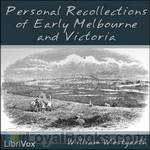 Personal Recollections of Early Melbourne and Victoria
Personal Recollections of Early Melbourne and Victoria
Son of John Westgarth, surveyor-general of customs for Scotland, was born at Edinburgh, in June 1815. He was educated at the high schools at Leith and Edinburgh, and at Dr Bruce’s school at Newcastle-on-Tyne. He then entered the office of G. Young and Company of Leith, who were engaged in the Australian trade, and realizing the possibilities of the new land, decided to emigrate to Australia. He arrived in Melbourne, then a town of three or four thousand inhabitants, in December 1840.When the new colony was constituted Westgarth headed the poll for Melbourne at the election for the legislative council... | |
By: William Worthington Fowler (1833-1881) | |
|---|---|
 Woman on the American Frontier
Woman on the American Frontier
Many books describe the role of men during American history. However, at the same time, women did much: comforted, fought, helped, raised children, and much more. This book is full of mini-biographies of women in many places, and many ages- each chapter telling about a different subject. | |
By: Willis J. Abbot (1863-1934) | |
|---|---|
 Aircraft and Submarines
Aircraft and Submarines
"Aircraft and Submarines" is a history of the development of these forms of transportation and their ultimate use in warfare. Also a brief history of submarine use in commercial applications. A thoroughly enjoyable piece for anyone interested in the detailed development of these modes of transportation. | |
 American Merchant Ships and Sailors
American Merchant Ships and Sailors
| |